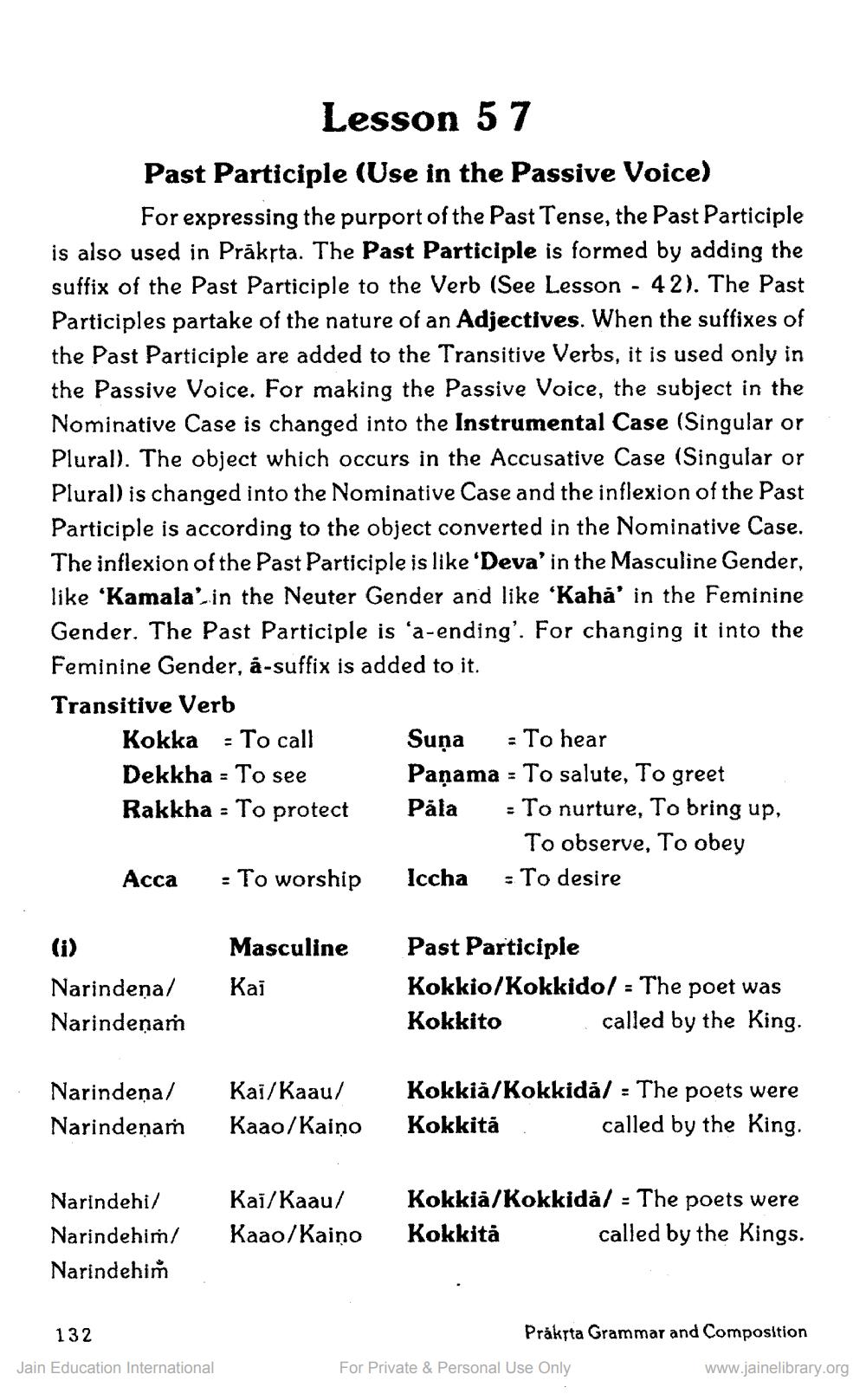________________
Lesson 57
Past Participle (Use in the Passive Voice)
For expressing the purport of the Past Tense, the Past Participle is also used in Prākṛta. The Past Participle is formed by adding the suffix of the Past Participle to the Verb (See Lesson 42). The Past Participles partake of the nature of an Adjectives. When the suffixes of the Past Participle are added to the Transitive Verbs, it is used only in the Passive Voice. For making the Passive Voice, the subject in the Nominative Case is changed into the Instrumental Case (Singular or Plural). The object which occurs in the Accusative Case (Singular or Plural) is changed into the Nominative Case and the inflexion of the Past Participle is according to the object converted in the Nominative Case. The inflexion of the Past Participle is like 'Deva' in the Masculine Gender, like 'Kamala in the Neuter Gender and like 'Kaha' in the Feminine Gender. The Past Participle is 'a-ending'. For changing it into the Feminine Gender, a-suffix is added to it.
Transitive Verb
(i)
Kokka = To call
Dekkha To see
=
Rakkha To protect
Acca - To worship
Narindena/ Kai
Narindenam
Masculine
Narindena/ Kai/Kaau/ Narindenam Kaao/Kaino
Narindehi/
Narindehim/
Narindehim
132
Jain Education International
Kai/Kaau/
Kaao/Kaino
= To hear
Suņa Panama = To salute, To greet Påla
Iccha
Kokkito
Past Participle
Kokkio/Kokkido/= The poet was called by the King.
Kokkitä
-
= To nurture, To bring up, To observe, To obey = To desire
Kokkiä/Kokkida/ The poets were called by the King.
Kokkitä
=
=
Kokkia/Kokkida/ The poets were called by the Kings.
For Private & Personal Use Only
Präkṛta Grammar and Composition
www.jainelibrary.org




